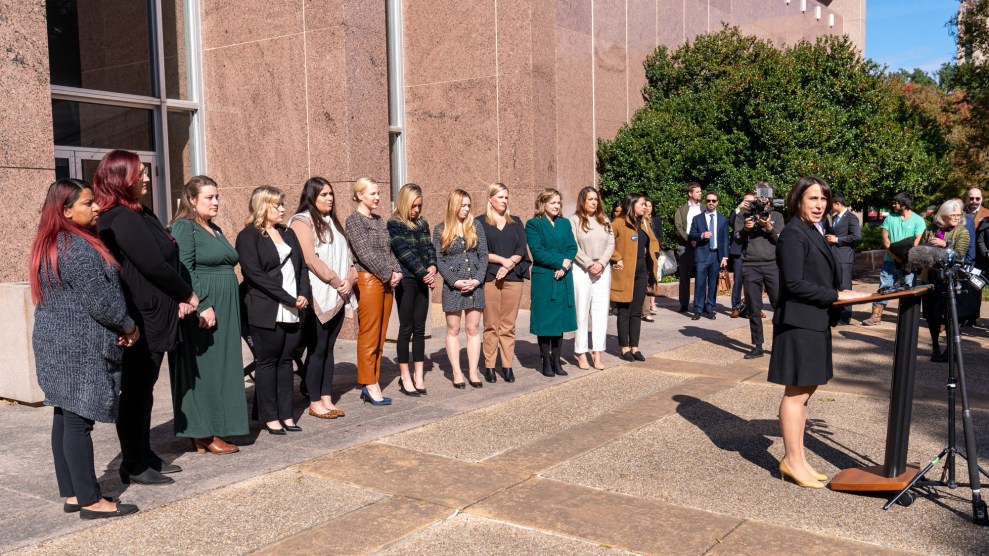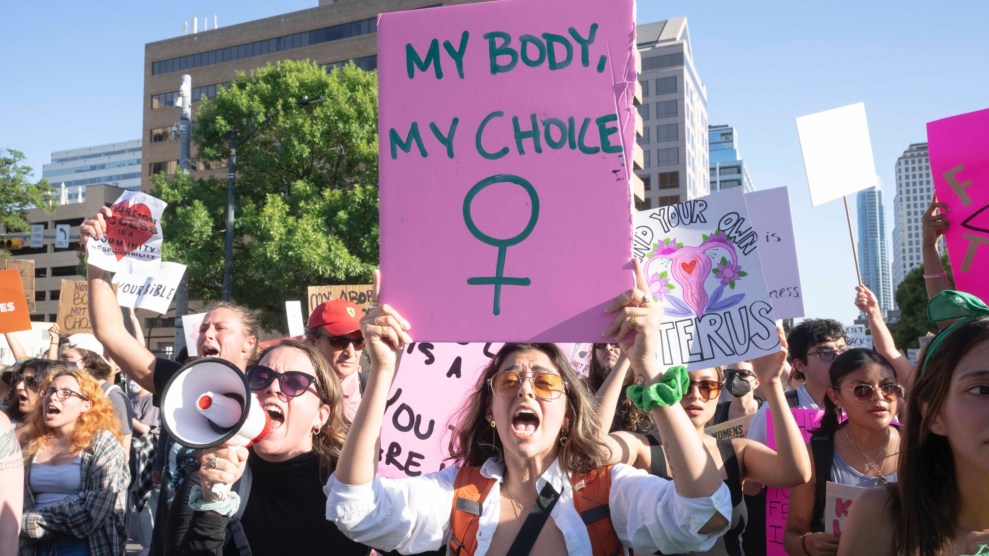
Justin Rex/AP
Update, December 8, 2023: Hours after a Texas judge granted Kate Cox’s request for an emergency abortion, state Attorney General Ken Paxton sent a threatening letter to the employers of the Cox’s doctor. “We feel it is important for you to understand the potential long-term implications if you permit such an abortion to occur at your facility,” the letter says.
In a historic ruling today, a Texas judge granted a woman’s request for an emergency abortion. Kate Cox asked a Texas court earlier this week to halt enforcement of the state’s near total abortion ban. Judge Maya Guerra Gamble said yes.
Her petition to the court was the first time since abortion was legalized in 1973 that an adult pregnant person asked a court for permission to get an abortion.
The decision comes after Cox learned in late November that her fetus was diagnosed with full trisomy 18, a chromosomal disorder that causes fetuses to die before or soon after birth. With each day that passed, her doctor’s explained, the pregnancy was a risk to her health. But because of Texas’ abortion ban, Cox’s doctors said their “hands are tied.” She’s about 20 weeks pregnant now.
“Continuing the pregnancy,” the petition read, “puts her at high risk for severe complications threatening her life and future fertility, including uterine rupture and hysterectomy.”
Cox wanted this pregnancy, and hopes to become pregnant again—a fact that the judge cites in her reasoning for granting the order.
“The idea that Miss Cox wants desperately to be a parent, and this law might actually cause her to lose that ability is shocking, and would be a genuine miscarriage of justice,” Judge Guerra Gamble said Thursday. The Zoom hearing lasted just 45 minutes.
“It is not a matter of if I will have to say goodbye, but when,” Cox said in her petition. “I do not want to continue the pain and suffering that has plagued this pregnancy. I do not want to put my body through the risks of continuing this pregnancy. I do not want to continue until my baby dies in my belly or I have to deliver a stillborn baby or one where life will be measured in hours or days, full of medical tubes and machinery.”
Cox is represented by the Center for Reproductive Rights. The organization is currently also representing 20 women and two doctors in a Texas Supreme Court case. They are arguing that pregnant people with medical complications have not been receiving proper care in the state.
These women’s cases look a lot like Cox’s. Many of the plaintiffs wanted their pregnancies but were forced to make difficult decisions because of Texas’ laws. Some traveled out of state for abortions, while others gave birth to babies who only lived for seconds. A ruling is expected sometime this summer.
Texas’ current ban includes exceptions if the patient could die or if they’re at “serious risk of substantial impairment of a major bodily function.” The Center argues this language is too vague and dangerous for pregnant people and providers.
In the hearing today, Jonathan Stone, a lawyer for the Texas Office of the Attorney General, claimed that Cox did not meet the state’s requirements in order to terminate for a medical reason. And he said that granting her petition would, in effect, mean “changing the medical exemption in Texas and then saying that the plaintiffs meet this changed, newly rewritten standard.”
It’s unclear exactly how today’s news will impact this and other cases around the country that are bringing into question medical exceptions to abortion bans.
What is clear is that a woman was granted an emergency abortion in Texas, the same state that has been leading the country in anti-abortion legislation, and the same state that, five decades ago, brought us Roe.














